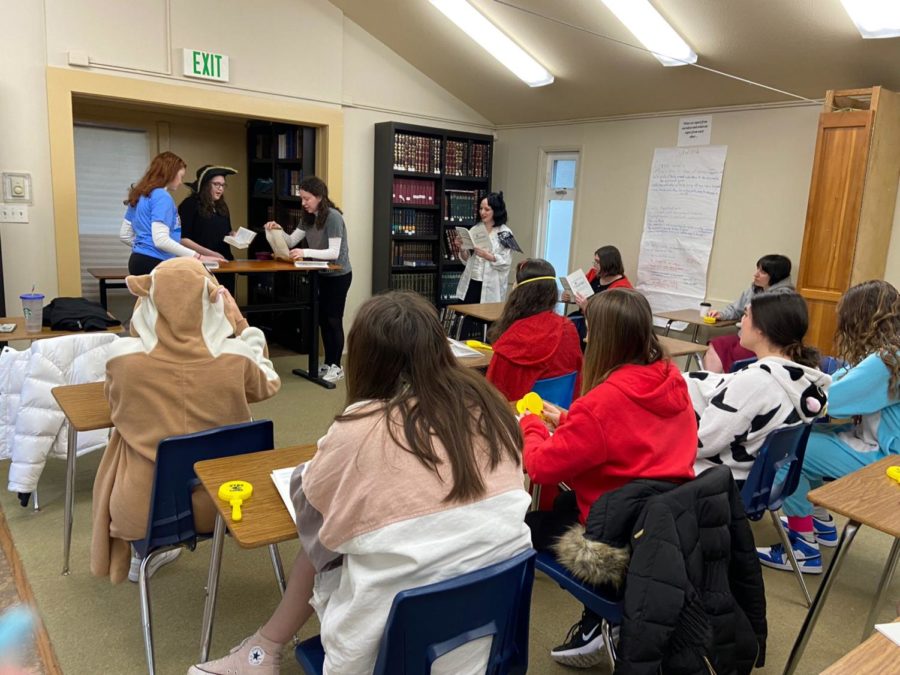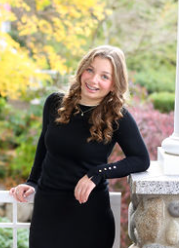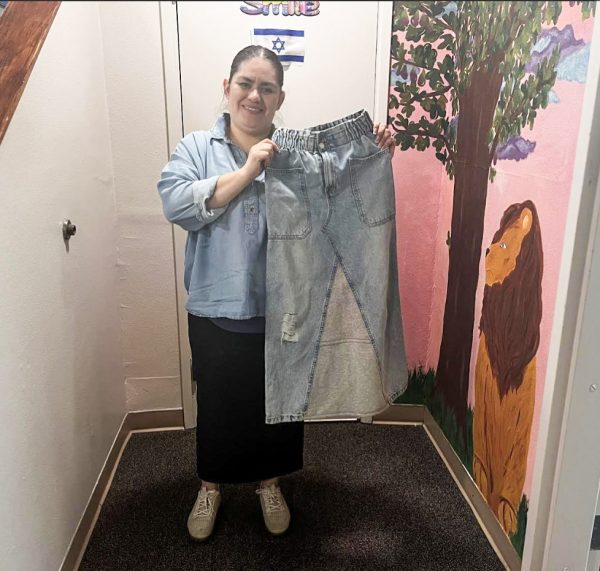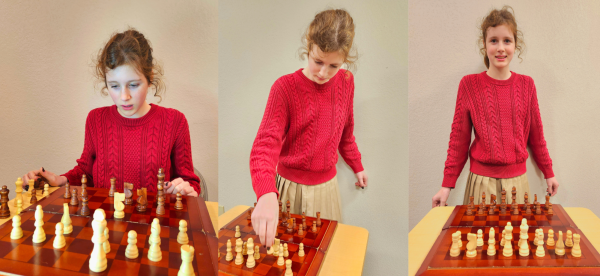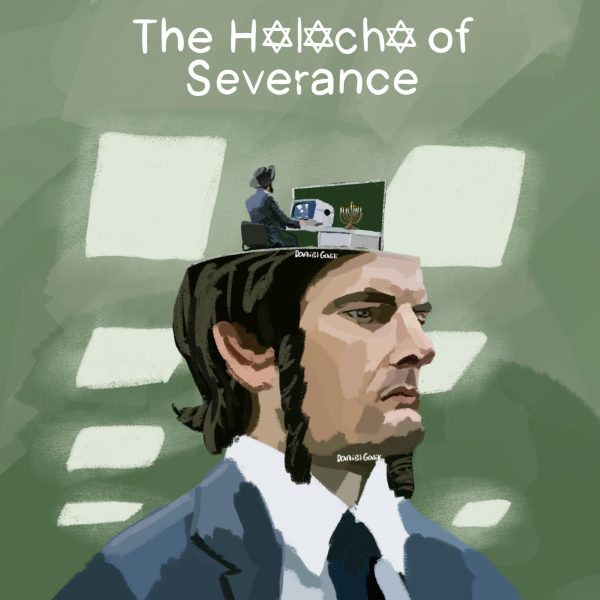NYHS holds first student-led women’s Megillah reading
When senior Edee Polyakovsky observed a lack of engagement and enthusiasm the girls showed in davening, she initiated a weekly alternative referred to as “Tefilat Nashim” (women’s prayer in Hebrew) for girls to learn the words, tunes, and melodies sung in davening. This led to the first-ever NYHS women’s Megillah reading, held at the school on Purim day this year.
Polyakovsky heard from the girls that the reason they weren’t engaged with prayer was that they didn’t know how to be. “The way to improve engagement in a matter is to help people learn about it,” Polyakovsky said. ”If they know the tune they are more likely to sing it.” Initially, Polyakovsky had students request liturgical tunes that they wished to learn. Instead of melodies, however, Polakovsky said there was an overwhelming interest in learning Megillat Esther and its unique trope (cantillation notes).
An experienced Bar and Bat mitzvah instructor, Polyakovsky taught herself the trope last fall by watching videos. Then once a group of five girls committed to reading Megillah, they used the Jewish Orthodox Feminist Alliance website to practice chanting.
Unlike public Torah readings, women are permitted to read Megillah. In last year’s Talmud class, the upperclassmen learned that the Gemara (Talmud Bavli, Megillah 4A) says that women were involved in the Purim miracle, therefore they are obligated to read (or hear) the megillah. However, according to many halachic authorities, men and women have a different level of obligation of the mitzvah, allowing women to read for one another but not for men.
Approximately 50 women from all over the community came to NYHS on Purim to listen to and support the students. Polyakovsky shared a few words before starting the Megillah reading. “I’m really proud of the NYHS girls for pulling this off,” Polyakovsky said. “I’m really proud of the community for showing up.”
The readers were also proud of their achievements. “It was so amazing how a group of five women who had never done this before came together and completed a beautiful mitzvah,” Becca Benezra, who read perek (chapter) 7, said. Polyakovsky agreed: “The thing that means most to me is a couple of the girls who did not read today said they were inspired to take this on next year.”

